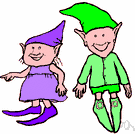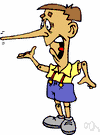fiction
Also found in: Thesaurus, Medical, Legal, Acronyms, Idioms, Encyclopedia, Wikipedia.
fiction
literature consisting of imaginative stories and characters, as novels and short stories: Her book is a work of fiction.; the act of feigning, inventing, or imagining; fable, fantasy
Not to be confused with:
faction – discord, disagreement, schism, split, friction; a group or clique within a larger group: A faction in the government wants to rewrite the Constitution.; dissension: a time of faction and strife
Abused, Confused, & Misused Words by Mary Embree Copyright © 2007, 2013 by Mary Embree
fic·tion
(fĭk′shən)n.
1.
a. The category of literature, drama, film, or other creative work whose content is imagined and is not necessarily based on fact.
b. Works in this category: the fiction of Virginia Woolf.
c. A work within this category: the shorter fictions of Faulkner.
2.
a. Narrative, explanatory material, or belief that is not true or has been imagined or fabricated: The notion that he was at the scene of the crime is pure fiction.
b. A narrative, explanation, or belief that may seem true but is false or fabricated: "Neutrality is a fiction in an unneutral world" (Howard Zinn).
3. Law A verbal contrivance that is in some sense inaccurate but that accomplishes a purpose, as in the treatment of husband and wife as one person or a corporation as an entity.
[Middle English ficcioun, from Old French fiction, from Latin fictiō, fictiōn-, from fictus, past participle of fingere, to form; see dheigh- in Indo-European roots.]
fic′tion·al adj.
fic′tion·al′i·ty (-shə-năl′ĭ-tē) n.
fic′tion·al·ly adv.
American Heritage® Dictionary of the English Language, Fifth Edition. Copyright © 2016 by Houghton Mifflin Harcourt Publishing Company. Published by Houghton Mifflin Harcourt Publishing Company. All rights reserved.
fiction
(ˈfɪkʃən)n
1. (Literary & Literary Critical Terms) literary works invented by the imagination, such as novels or short stories
2. an invented story or explanation; lie
3. the act of inventing a story or explanation
4. (Law) law something assumed to be true for the sake of convenience, though probably false
[C14: from Latin fictiō a fashioning, hence something imaginary, from fingere to shape]
ˈfictional adj
ˈfictionally adv
ˌfictionˈeer, ˈfictionist n
Collins English Dictionary – Complete and Unabridged, 12th Edition 2014 © HarperCollins Publishers 1991, 1994, 1998, 2000, 2003, 2006, 2007, 2009, 2011, 2014
fic•tion
(ˈfɪk ʃən)n.
1. the class of literature comprising works of imaginative narration, esp. in prose form.
2. works of this class, as novels or short stories.
3. something feigned, invented, or imagined, esp. a made-up story.
4. the act of feigning, inventing, or imagining.
5. an assumption that a fact exists, regardless of the truth of the matter, so that a legal principle can be applied on the basis of the existing facts.
[1375–1425; < Latin fictiō action of shaping, feigning, fiction, derivative of fingere to shape]
fic′tion•al, adj.
fic′tion•al•ly, adv.
Random House Kernerman Webster's College Dictionary, © 2010 K Dictionaries Ltd. Copyright 2005, 1997, 1991 by Random House, Inc. All rights reserved.
fiction
Literature, especially stories, based on invented character and incidents—though fiction may often be set against a background of real events and draw on real-life experience.
Dictionary of Unfamiliar Words by Diagram Group Copyright © 2008 by Diagram Visual Information Limited
ThesaurusAntonymsRelated WordsSynonymsLegend:
Switch to new thesaurus
| Noun | 1. |  fiction - a literary work based on the imagination and not necessarily on fact fiction - a literary work based on the imagination and not necessarily on factliterary composition, literary work - imaginative or creative writing dystopia - a work of fiction describing an imaginary place where life is extremely bad because of deprivation or oppression or terror novel - an extended fictional work in prose; usually in the form of a story fantasy, phantasy - fiction with a large amount of imagination in it; "she made a lot of money writing romantic fantasies" story - a piece of fiction that narrates a chain of related events; "he writes stories for the magazines" utopia - a work of fiction describing a utopia |
| 2. |  fiction - a deliberately false or improbable account fiction - a deliberately false or improbable accountcanard - a deliberately misleading fabrication |
Based on WordNet 3.0, Farlex clipart collection. © 2003-2012 Princeton University, Farlex Inc.
fiction
noun
1. tale, story, novel, legend, myth, romance, fable, storytelling, narration, creative writing, work of imagination She is a writer of historical fiction.
2. imagination, fancy, fantasy, creativity a story of truth or fiction
3. lie, fancy, fantasy, invention, improvisation, fabrication, concoction, falsehood, untruth, porky (Brit. slang), pork pie (Brit. slang), urban myth, tall story, urban legend, cock and bull story (informal), figment of the imagination Total recycling is a fiction.
Quotations
"'Tis strange - but true; for truth is always strange;"
"Stranger than fiction" [Lord Byron Don Juan]
"Truth may be stranger than fiction, but fiction is truer" [Frederic Raphael Contemporary Novelists]
"Literature is a luxury. Fiction is a necessity" [G.K. Chesterton The Defendant]
"'Tis strange - but true; for truth is always strange;"
"Stranger than fiction" [Lord Byron Don Juan]
"Truth may be stranger than fiction, but fiction is truer" [Frederic Raphael Contemporary Novelists]
"Literature is a luxury. Fiction is a necessity" [G.K. Chesterton The Defendant]
Collins Thesaurus of the English Language – Complete and Unabridged 2nd Edition. 2002 © HarperCollins Publishers 1995, 2002
fiction
noun1. An illusory mental image:
2. Any fictitious idea accepted as part of an ideology by an uncritical group; a received idea:
3. An untrue declaration:
canard, cock-and-bull story, falsehood, falsity, fib, inveracity, lie, misrepresentation, misstatement, prevarication, story, tale, untruth.
Informal: fish story, tall tale.
Slang: whopper.
The American Heritage® Roget's Thesaurus. Copyright © 2013, 2014 by Houghton Mifflin Harcourt Publishing Company. Published by Houghton Mifflin Harcourt Publishing Company. All rights reserved.
Translations
قصص خَياليهقِصَّةٌ خَيَالِيَّة
beletriefikce
fiktionskønlitteratur
kaunokirjallisuussepitetarufiktio
fikcija
regényirodalom
skáldskapur
フィクション
소설
grožinė literatūraišgalvotas
daiļliteratūraizdomājums
beletria
leposlovje
skönlitteratur
นวนิยาย
hayâl ürünü öykükurgu
tiểu thuyết
fiction
[ˈfɪkʃən] NCollins Spanish Dictionary - Complete and Unabridged 8th Edition 2005 © William Collins Sons & Co. Ltd. 1971, 1988 © HarperCollins Publishers 1992, 1993, 1996, 1997, 2000, 2003, 2005
fiction
[ˈfɪkʃən] n (= literary work) → fiction f
historical fiction → fiction historique
a work of fiction → une œuvre de fiction
historical fiction → fiction historique
a work of fiction → une œuvre de fiction
Collins English/French Electronic Resource. © HarperCollins Publishers 2005
fiction
n
no pl (Liter) → Erzähl- or Prosaliteratur f; you’ll find that under fiction → das finden Sie unter Belletristik; work of fiction → Erzählung f; (longer) → Roman m; light fiction → (leichte) Unterhaltungsliteratur; romantic fiction → Liebesromane pl
Collins German Dictionary – Complete and Unabridged 7th Edition 2005. © William Collins Sons & Co. Ltd. 1980 © HarperCollins Publishers 1991, 1997, 1999, 2004, 2005, 2007
fiction
[ˈfɪkʃ/ən] na. (Literature) → narrativa
a work of fiction → un'opera di narrativa
light fiction → narrativa leggera
a work of fiction → un'opera di narrativa
light fiction → narrativa leggera
b. (sth made up) → finzione f
Collins Italian Dictionary 1st Edition © HarperCollins Publishers 1995
fiction
(ˈfikʃən) noun stories etc which tell of imagined, not real, characters and events (see also non-fiction). I prefer reading fiction to hearing about real events.
ˈfictional adjectivefictitious (fikˈtiʃəs) adjective
1. not true. a fictitious account.
2. not real or based on fact. All the characters in the book are fictitious.
Kernerman English Multilingual Dictionary © 2006-2013 K Dictionaries Ltd.
fiction
→ قِصَّةٌ خَيَالِيَّة beletrie fiktion Belletristik πεζογραφία ficción kaunokirjallisuus fiction fikcija fiction フィクション 소설 fictie fiksjon fikcja ficção художественная литература skönlitteratur นวนิยาย kurgu tiểu thuyết 小说Multilingual Translator © HarperCollins Publishers 2009